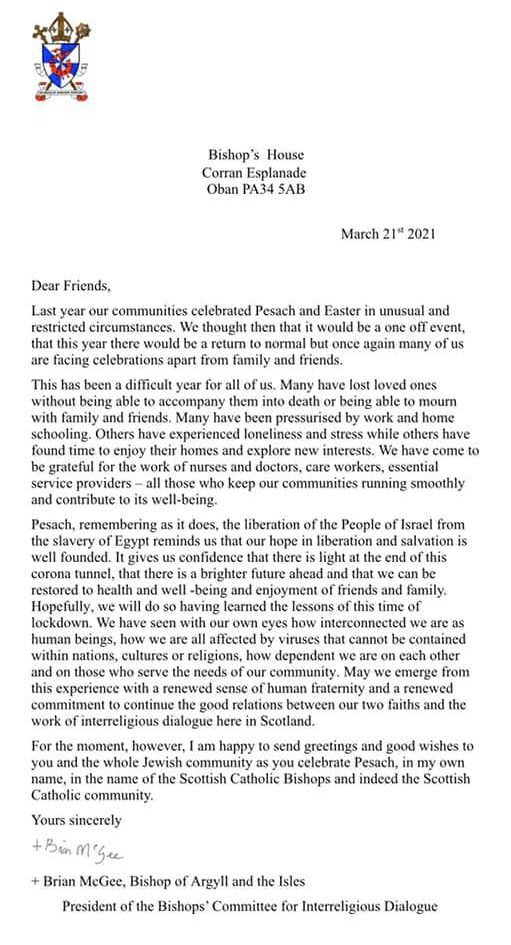A Beautiful Message on Self Care
Happy Passover and happy almost Easter! I hope this weekend, no matter if you celebrate or not, you are spending time with family and loved ones. I wanted to take a moment to share this beautiful message from the Catholic Community and Bishops in Scotland. It was posted on my private Facebook group, GRANDwomen with Moxie, by one of our members. When I read it, I just knew I had to share it!
Self Care and Creating a Self Care Plan
Self care is more than just a buzzword—it’s a vital part of maintaining our overall well-being. According to the World Health Organization, self care refers to the ability of individuals, families, and communities to promote health, prevent disease, maintain health, and cope with illness and disability. Health care and the health care system play a crucial role in supporting self care by integrating self care interventions and ensuring individuals have access to resources and support for managing their health.
In our busy daily lives, it’s easy to overlook our own needs, but making self care a priority can have a profound impact on our emotional health, physical health, and mental well-being. By creating a self care plan that fits your lifestyle, you can reduce stress, prevent disease, and improve your quality of life. Disease prevention and health promotion are key components of self care, helping individuals take proactive steps to maintain well-being and avoid illness.
Whether you’re managing a chronic illness and focusing on chronic disease management, or simply looking to feel your best, self care interventions are an essential tool for maintaining health and enjoying life to the fullest. Self care is important because it supports health promotion, disease prevention, and helps relieve pressure on the health care system, ultimately improving overall health outcomes.
Sending you much love and warmth during this holy and beautiful time.
Now, on to my Weekend Musings…
Have You Heard of Underarm Care?
As I was looking for articles to share with you this week, I came across this one on Vogue.com! It’s all about how to take care of your underarm area this spring! Honestly, when I saw it, I let out a laugh. But when I read the article, I knew I had to share this information. Your underarm is an easy area to omit from your daily skincare routine, but it’s a very important area that needs to be maintained and cleaned! Having the right resources, such as proper supplies and clear instructions, is essential to effectively include underarm care in your self care routine.
Underarm care is often not considered self care, but it is an important part of holistic well-being and should be included in self care routines.
This article walks you through how to take care of your underarm and keep it fresh, exfoliated, and beautiful. I hope you enjoy learning this information as I did!
Low Impact Cardio Workout for Beginners
If you’re looking to get into shape for summer, or just to feel better in your body, I know it can be hard to get started. But, the best thing about getting started is that all it takes is once! This video is a great 20-minute low impact cardio workout for older women or beginners who need to ease into their workouts. Low impact cardio workouts are excellent self care activities that support both physical and mental health. Incorporating self monitoring, such as tracking your workouts or symptoms, can help you stay motivated and aware of your progress in your self care journey.
It’s so important to stay healthy as we age, and if you can start slow, you can do it! Engaging in regular self care activities like this can lead to a decreased risk of health issues as we age. I believe in you. Let me know if you try this video or have any other suggestions!
Types of Self Care: Physical Self Care
Self care comes in many forms, each supporting a different aspect of our health and well-being. Physical self care includes activities like regular exercise, eating nourishing foods, and getting enough sleep—simple habits that help us maintain our physical health and energy. Emotional self care is all about managing our feelings and practicing emotional regulation, whether through journaling, talking with a friend, or practicing mindfulness. Mental self care keeps our minds sharp and engaged, while also supporting our psychological well-being, from reading a good book to learning a new skill or exploring creative hobbies. Spiritual self care connects us to our inner selves and a sense of purpose, whether through meditation, prayer, or spending time in nature, or engaging in spiritual practices that resonate with you. By weaving these self care practices into our daily routines, we can maintain a healthy balance, support our overall health, and decrease the risk of chronic disease. Social well-being is also a vital part of a holistic self care approach, as nurturing relationships and fostering connections help prevent loneliness and support mental health.
Creating a Self Care Plan
Creating a self care plan is a beautiful act of self-respect and intentional living. It’s about taking the time to reflect on your unique needs and making conscious choices that promote health, prevent disease, and support your overall well-being. The World Health Organization emphasizes that self care is essential for maintaining both physical and mental health, and a personalized self care plan can help you stay on track, even when life gets busy.
Start by identifying the self care activities that nourish you—maybe it’s regular exercise, preparing healthy meals, or making sure you get enough sleep each night. Don’t forget to include emotional self care practices, like journaling, meditation, or spending time in nature to recharge your spirit. Your self care plan should fit your lifestyle and be flexible enough to adapt as your needs change. By setting aside time for self care, you can reduce stress, manage health challenges, and boost your ability to maintain health and well-being. Remember, your self care plan is yours alone—make it a reflection of what truly helps you feel your best.
The Best Books of 2021… So Far
Mindfulness, Mental Health, and Self Care
Mindfulness is a powerful self care strategy that can transform the way we experience daily life. It is just one of many self care strategies that individuals can use to support their mental and emotional health. By focusing on the present moment and tuning in to our thoughts, feelings, and sensations, we can reduce stress and anxiety, improve our emotional regulation, and boost our overall sense of well-being. Mindfulness doesn’t have to be complicated—it can be as simple as taking a few deep breaths, practicing meditation, or enjoying a gentle yoga session. Even everyday activities like eating, walking, or showering can become mindful moments when we pay attention to the sights, sounds, and sensations around us. Some self care tips for incorporating mindfulness into your daily routine include setting aside a few minutes each morning for mindful breathing, using reminders to pause and check in with yourself throughout the day, and practicing gratitude before bed. By making mindfulness a regular part of our self care routine, we can support our mental health, manage stress, and enjoy a greater sense of peace and balance in our lives, along with an improved sense of self-awareness and well-being.
Social Network: The Power of Connection in Self Care
One of the most powerful, yet sometimes overlooked, aspects of self care is the strength we draw from our social network. Social self care means nurturing the relationships that bring joy, comfort, and support into our lives. Whether it’s spending time with family members, catching up with friends, or connecting with a community group, these moments of togetherness are vital for our mental health and overall well-being.
The World Health Organization highlights the importance of social connections in promoting health and well-being. Building and maintaining a strong social network can help us cope with stress, reduce anxiety, and provide a sense of belonging. Social self care might look like joining a book club, volunteering, or simply sharing a meal with loved ones. By making time for these connections, we not only support our own health, but also contribute to the well-being of those around us. Remember, relationships are a key part of any self care plan—so don’t hesitate to reach out, connect, and let others be part of your journey.
With spring here, reading is so much more fun when you can sit outside and soak up some sun while doing it. If you’re reading list needs a refresh, or you’re looking to pick up some of the best books so far this year, Town & Country is back at it again with a great list.
Just like reading, taking time to watch TV can also be a relaxing self care activity, especially when you need to unwind.
If you’re craving a memoir, novels, mysteries, and more, this list has it all! I hope you find something that you’ll enjoy.
Oh, and darling, what has been your favorite book so far this year? Let me know in the comments at the bottom of this page.
Find the list HERE!
This Week’s Roundup of Blog Posts Include:
Overcoming Self Care Challenges
While self care is important, it’s not always easy to make it a priority. Many of us struggle with finding the time, energy, or motivation to practice self care, especially when work responsibilities and family needs take center stage. During stressful or overwhelming times, it’s especially important to prioritize more self care to help restore balance and well-being. It’s common to feel guilty for putting ourselves first, but remember: taking care of your own well-being helps you show up as your best self for others and strengthens your relationship with yourself and those around you. Start by setting small, achievable self care goals—like taking a short walk, practicing deep breathing, or carving out a few minutes for a favorite hobby. Don’t be afraid to reach out for support from friends, family, or mental health professionals if you need encouragement or accountability. Neglecting self care can contribute to depression and other mental health challenges, but building social support networks can help mitigate these effects and promote resilience. By overcoming these challenges and making self care a regular part of your routine, you’ll improve your overall health, reduce stress, and create a foundation for lasting well-being.
Older Adults and Self Care
As we grow older, self care becomes even more important—and sometimes, a bit more challenging. Older adults may face unique health concerns, from managing chronic disease to adapting to changes in physical or mental abilities. The World Health Organization offers valuable guidance for older adults, encouraging self care practices that support independence, reduce anxiety, and improve overall well-being.
Self care activities for older adults can include gentle exercise like walking or yoga, practicing meditation to manage stress, and staying socially connected with friends and family. Managing chronic disease may require more attention to medication, nutrition, and regular health check-ups, but it’s equally important to make time for activities that bring joy and relaxation. By prioritizing self care, older adults can maintain their quality of life, reduce the risk of illness, and continue to thrive. Remember, it’s never too late to start new self care practices or adapt your routine to fit your current needs—your well-being is always worth the effort.
Embracing Self Care as a Lifelong Journey
Self care isn’t a one-time event—it’s a lifelong journey of making choices that nurture your physical, emotional, and spiritual well-being. By weaving self care practices into your daily lives, you can reduce stress, support your mental health, and strengthen your ability to manage life’s challenges. The World Health Organization reminds us that self care is essential for promoting health and well-being at every stage of life.
Whether you’re focusing on physical self care through exercise and healthy eating, practicing emotional self care with mindfulness and journaling, or building a strong social network, each step you take is an investment in your overall health. Embrace self care as an ongoing commitment to yourself. By doing so, you’ll not only improve your quality of life, but also inspire those around you to prioritize their own well-being. Remember, taking care of yourself is the foundation for a happy, healthy, and fulfilling life—today and every day.
This Week’s Roundup of Blog Posts Include:
Learning From Others Is A Gift We All Owe Ourselves
How to Transition Your Skincare Routine from Winter to Spring
8 Tips Every Woman Needs to Know About Men Over 50
Why You Should Write a Motivational Letter to Yourself
A Few Tips On How To Improve Self-Confidence
Debunking Myths on Ageism and the Aging Workforce
If you enjoyed this article, please subscribe. You will get each daily story delivered straight to your inbox.
Want to Learn How to Start a Blog?




+ show Comments
- Hide Comments
add a comment